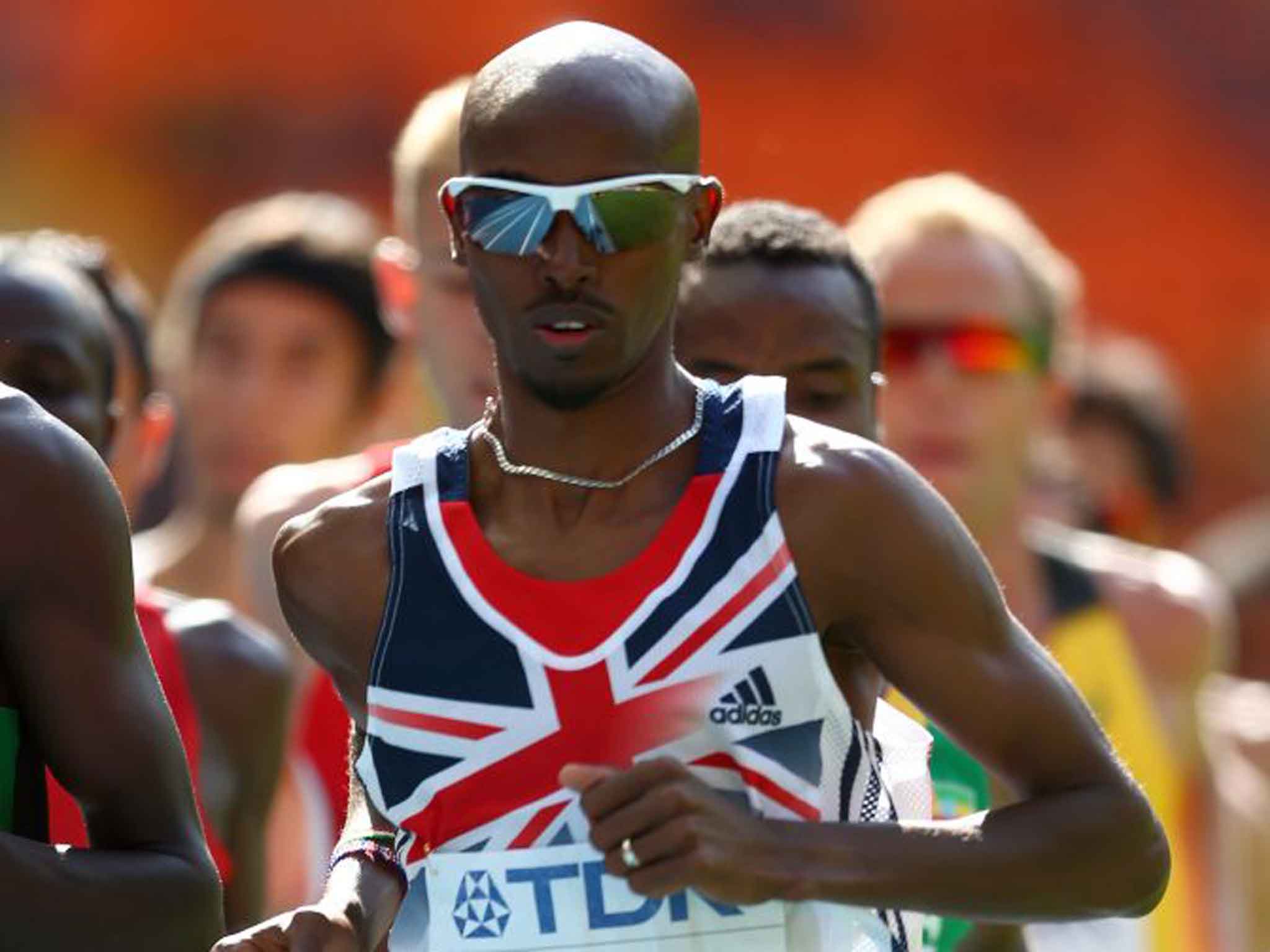World Championships: Mo Farah faces fight to achieve his historic 'double double'
Briton makes distance running look easy but even he will struggle to emulate Kenenisa Bekele

Your support helps us to tell the story
From reproductive rights to climate change to Big Tech, The Independent is on the ground when the story is developing. Whether it's investigating the financials of Elon Musk's pro-Trump PAC or producing our latest documentary, 'The A Word', which shines a light on the American women fighting for reproductive rights, we know how important it is to parse out the facts from the messaging.
At such a critical moment in US history, we need reporters on the ground. Your donation allows us to keep sending journalists to speak to both sides of the story.
The Independent is trusted by Americans across the entire political spectrum. And unlike many other quality news outlets, we choose not to lock Americans out of our reporting and analysis with paywalls. We believe quality journalism should be available to everyone, paid for by those who can afford it.
Your support makes all the difference.It is generally assumed that the double double is a dead certainty, that tonight Mo Farah will win the 5,000m to add to his two Olympic gold medals last summer and his 10,000m win here last Saturday.
We could all be forgiven for thinking that. After all, this season Farah has won virtually every race he has turned up for. In short, he has made the punishing nature of long-distance running look anything but.
But that is far from the reality. His body will be hurting from that 10,000m final and the subsequent 5,000m heat. Plus it's worth bearing in mind that his main rivals, such as the Ethiopian pair of Hagos Gebrhiwet and Yenew Alamirew, will be noticeably fresher as Farah and his training partner Galen Rupp are the only two athletes to be doubling up.
So big an ask is it that Sebastian Coe said it would make him the greatest British athlete of all time if he achieved it. So, how likely is it that he will win? According to Barry Fudge, the head of sports science at UK Athletics, not very. "If Mo wins a medal on Friday night he's going against the odds basically," explained Fudge. "It is a long shot when you're doing that [doubling up]. You don't really know what's going to happen.
"You don't know how your body's going to respond," he added. "You do all the training, all the prep, we do everything in and around the champs, but the human body is one of these things; you just hope that it's going to be all right."
It was the same at London 2012. With the 10,000m gold already in the bag, the focus for a week was solely on getting him recovered to be in contention to win the 5,000m. The day before, such a feat had looked highly unlikely, Farah complaining of being tired. But as Fudge drove him into the village, Farah told him he would run 52 seconds for the last lap, with Farah proving true to his word.
Quite what predictions he makes en route to the Luzhniki Stadium are not clear but Fudge said he would not know until that point, when Farah usually says "I'm ready". This race is like last year's Olympics but with a twist: because of the nature of the schedule he will have one less day to recover.
Minus the extra day, his build-up will be the same as in London, in fact the same as it has been every year since the European Championships in Barcelona in 2010 en route to his first double at those distances. Each morning, Fudge will liaise with Farah's coach Alberto Salazar either over breakfast at Moscow's five-star Crowne Plaza hotel or via email to put in place a programme for the day. As Farah himself says, "I just leave it all to Barry" and does what he is told.
The past days will have involved some running – from two-mile bursts to two hours on the treadmill at the gym – and high protein food such as rice, chicken, fish and veg as well as recovery drinks. He will have had daily massages from the performance director Neil Black, a trained physiotherapist, and ice baths to reduce any inflammation; and he will have slept a staggering 12 hours out of every 24, broken up between night-time and naps in the day, all of it in an altitude tent in his hotel bedroom.
Fudge, whose twin Steve coaches the sprinters James Dasaolu and Jonnie Peacock, and Farah started working together in 2009, since when Fudge has travelled with him to training camps in Iten, Kenya, and Oregon as well as the major championships.
He is a part-nutrionist, part-listening ear and part-bouncer as he tries to keep the distractions to an absolute minimum. In the past he has had blood tests done to see where Farah is physically but Fudge has opted against that here as Farah bids for only the second double double of its kind in history – Kenenisa Bekele achieved it in 2008 and 2009. No stone is being left unturned.
"We do everything we possibly can to get him there in the best shape possible," says Fudge. "People just see him turn up in a stadium and run the race and go 'wow, that's incredible'. But what actually goes into getting you to that point is a massive achievement. Most people wouldn't do what he does, most people can't."
As for what puts Farah above the rest of the field, Fudge merely taps his head. "That's his superpower." Super Mo will be expected to deliver again tomorrow night.
Join our commenting forum
Join thought-provoking conversations, follow other Independent readers and see their replies
Comments